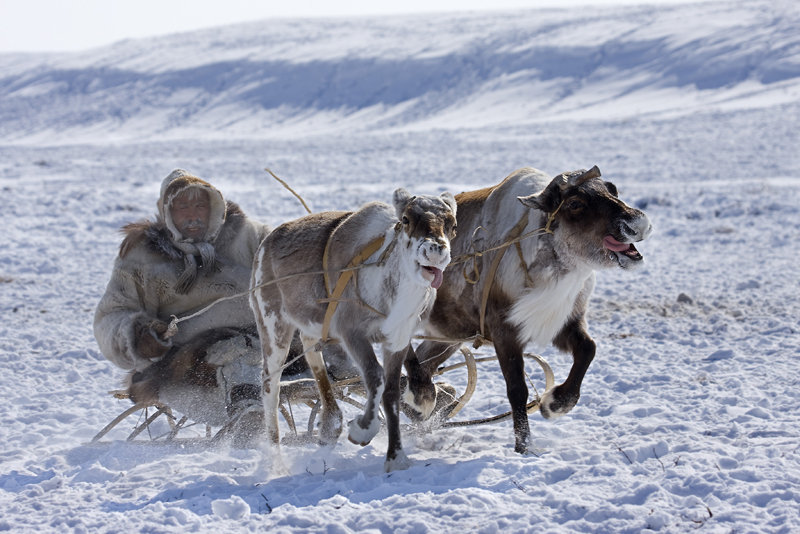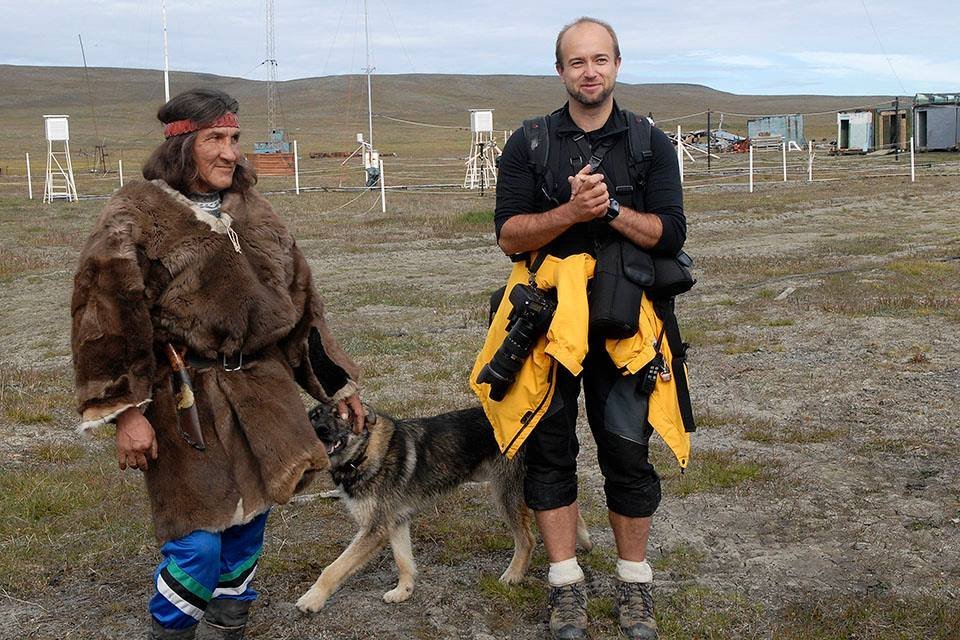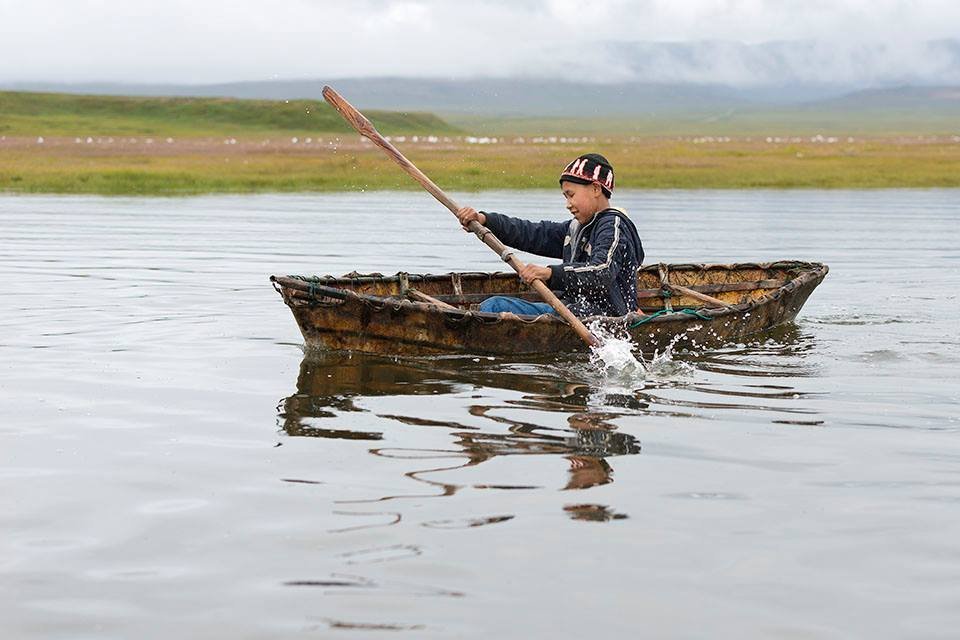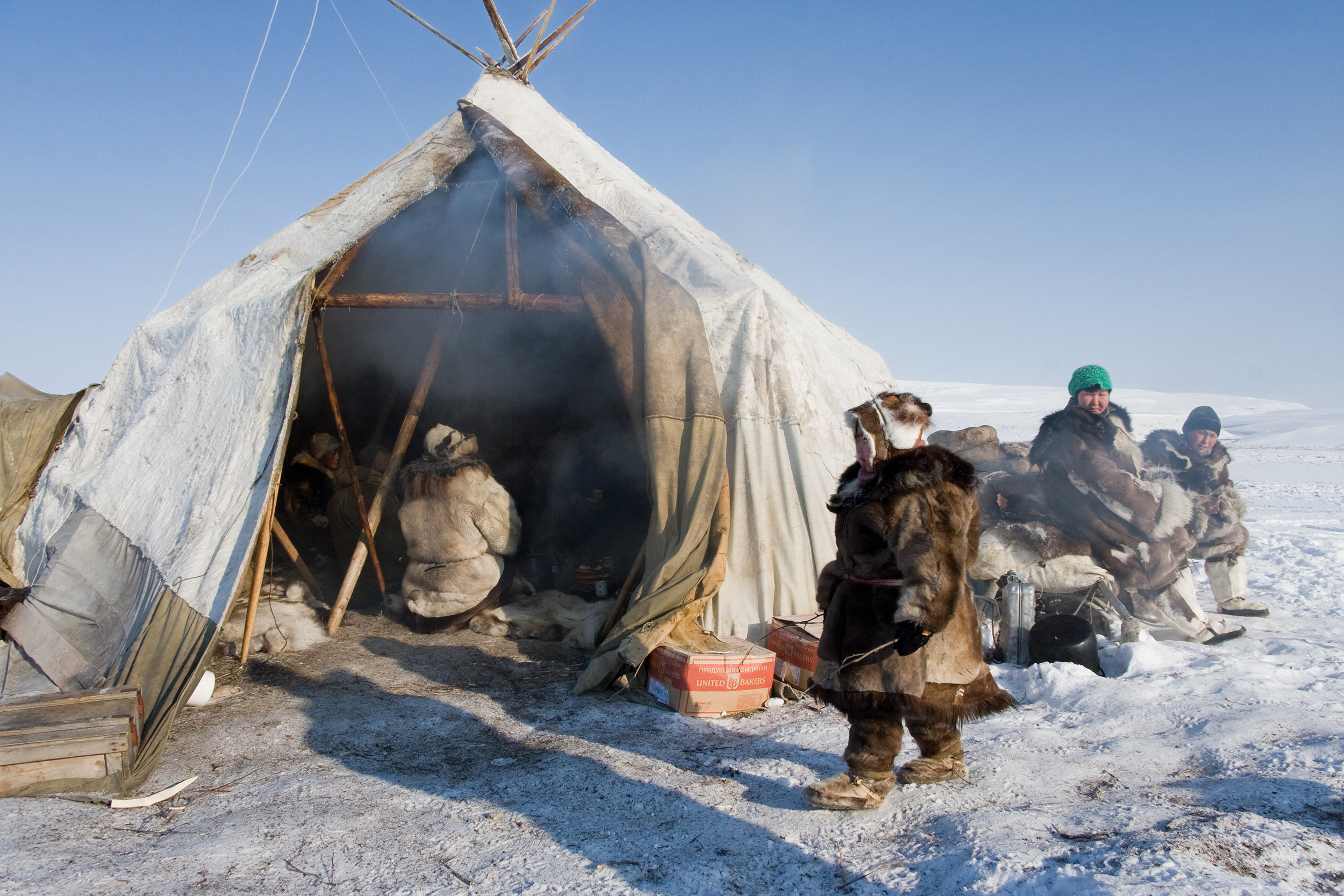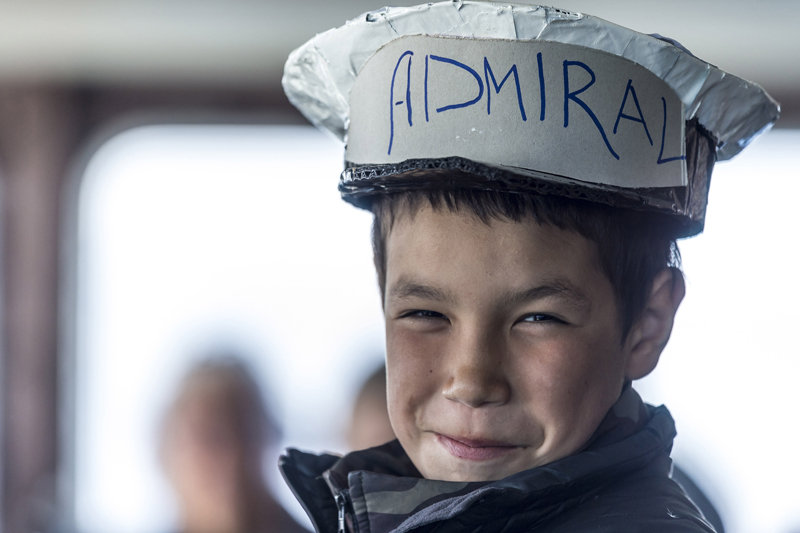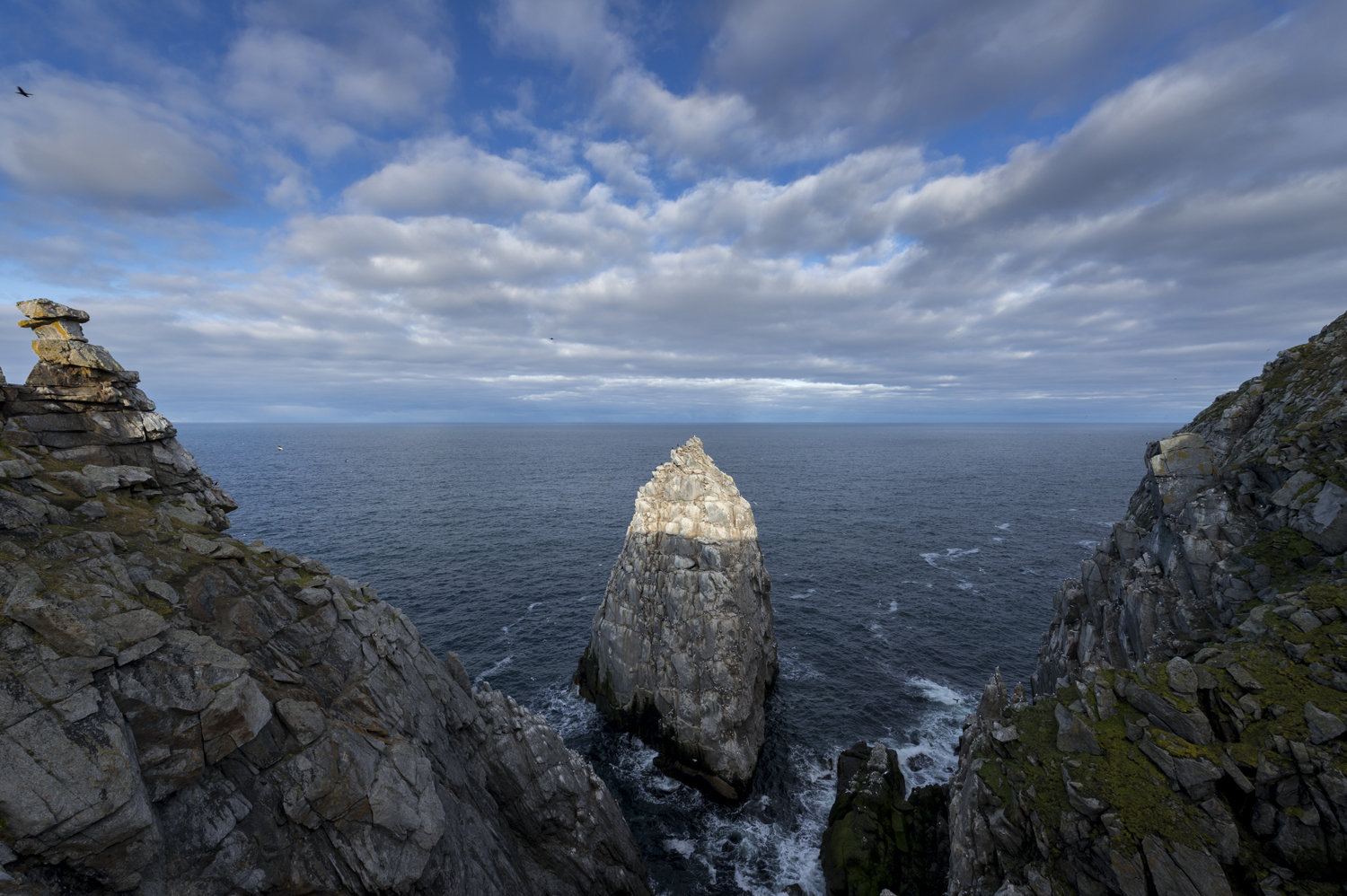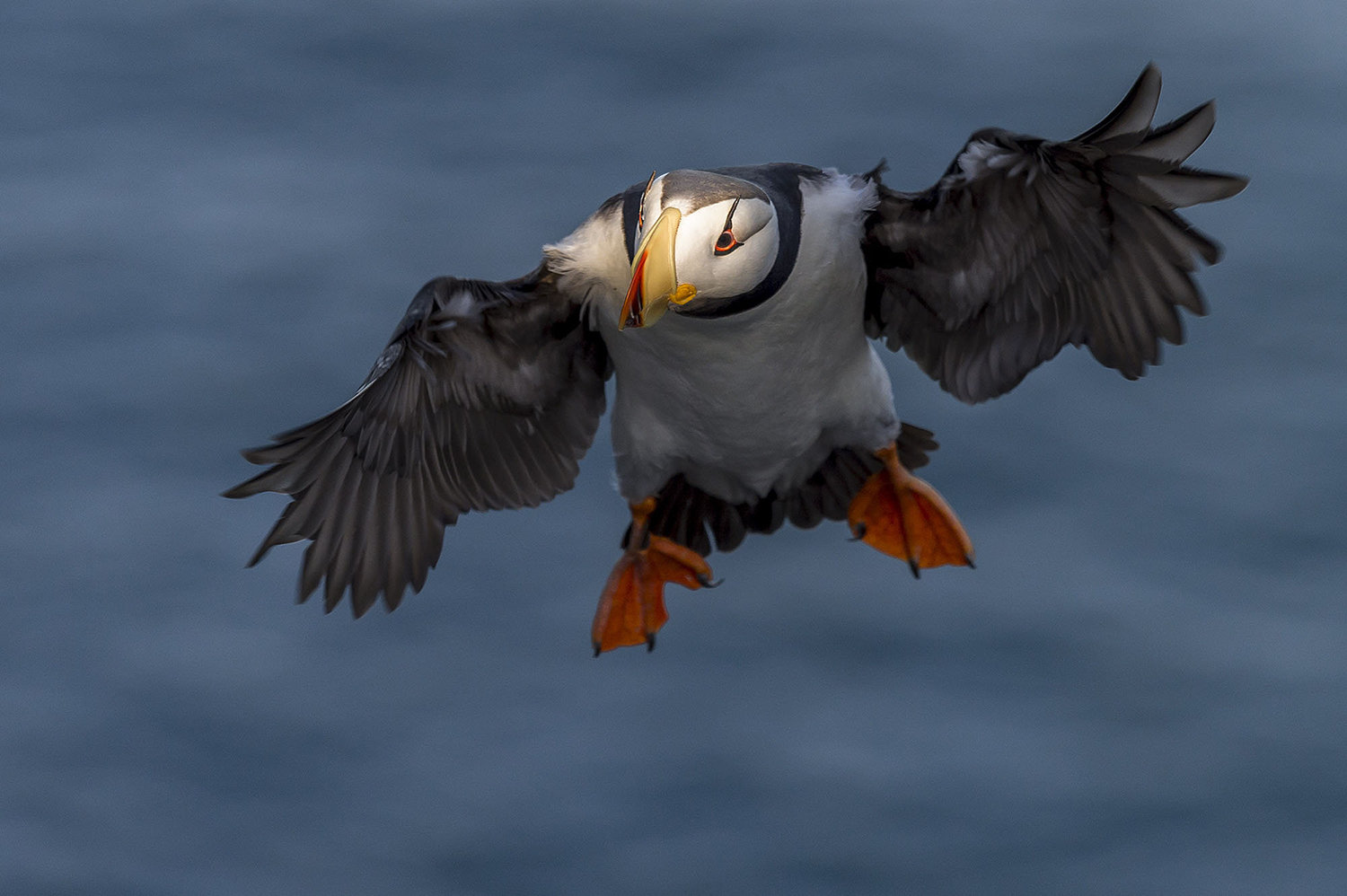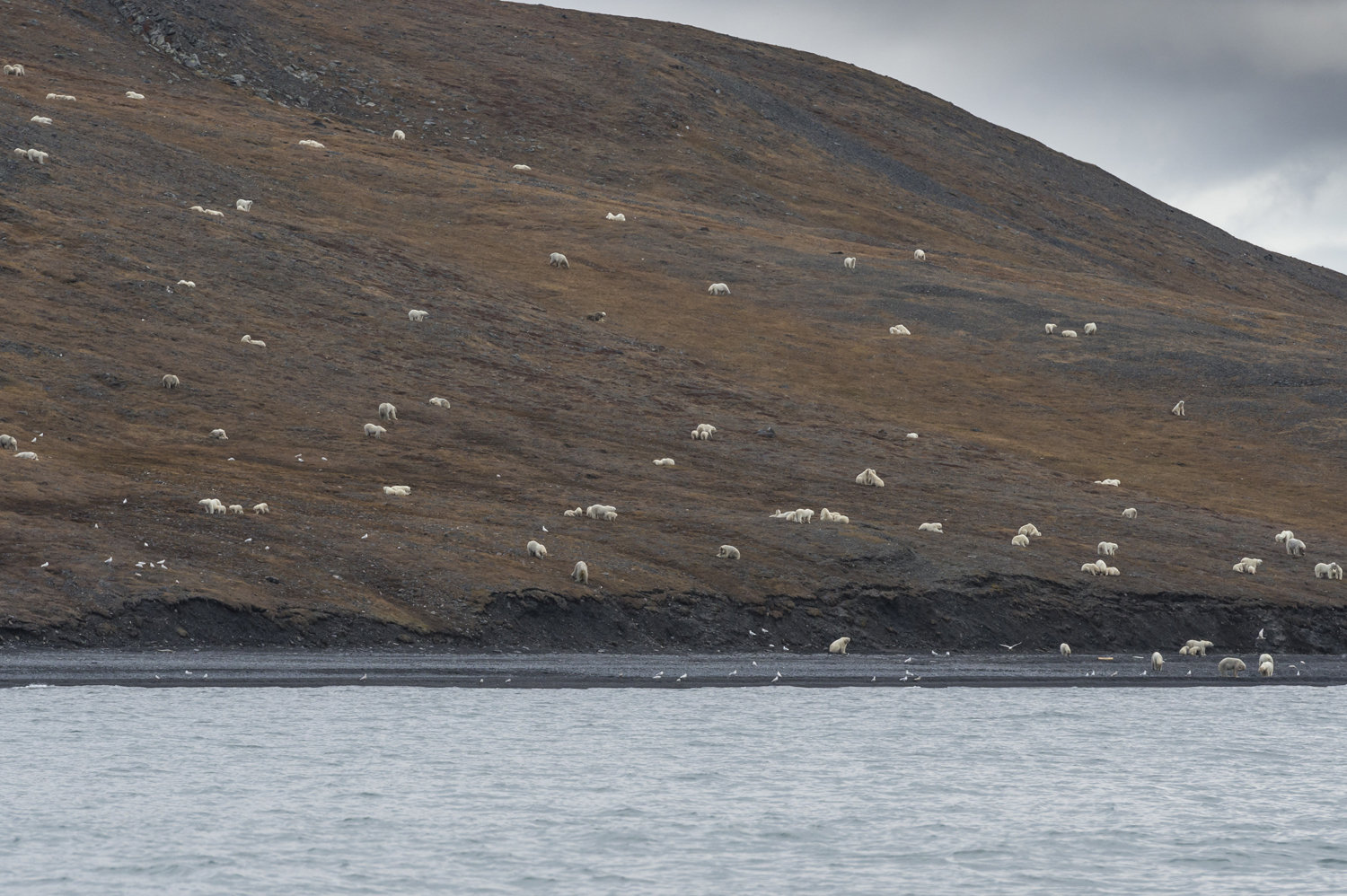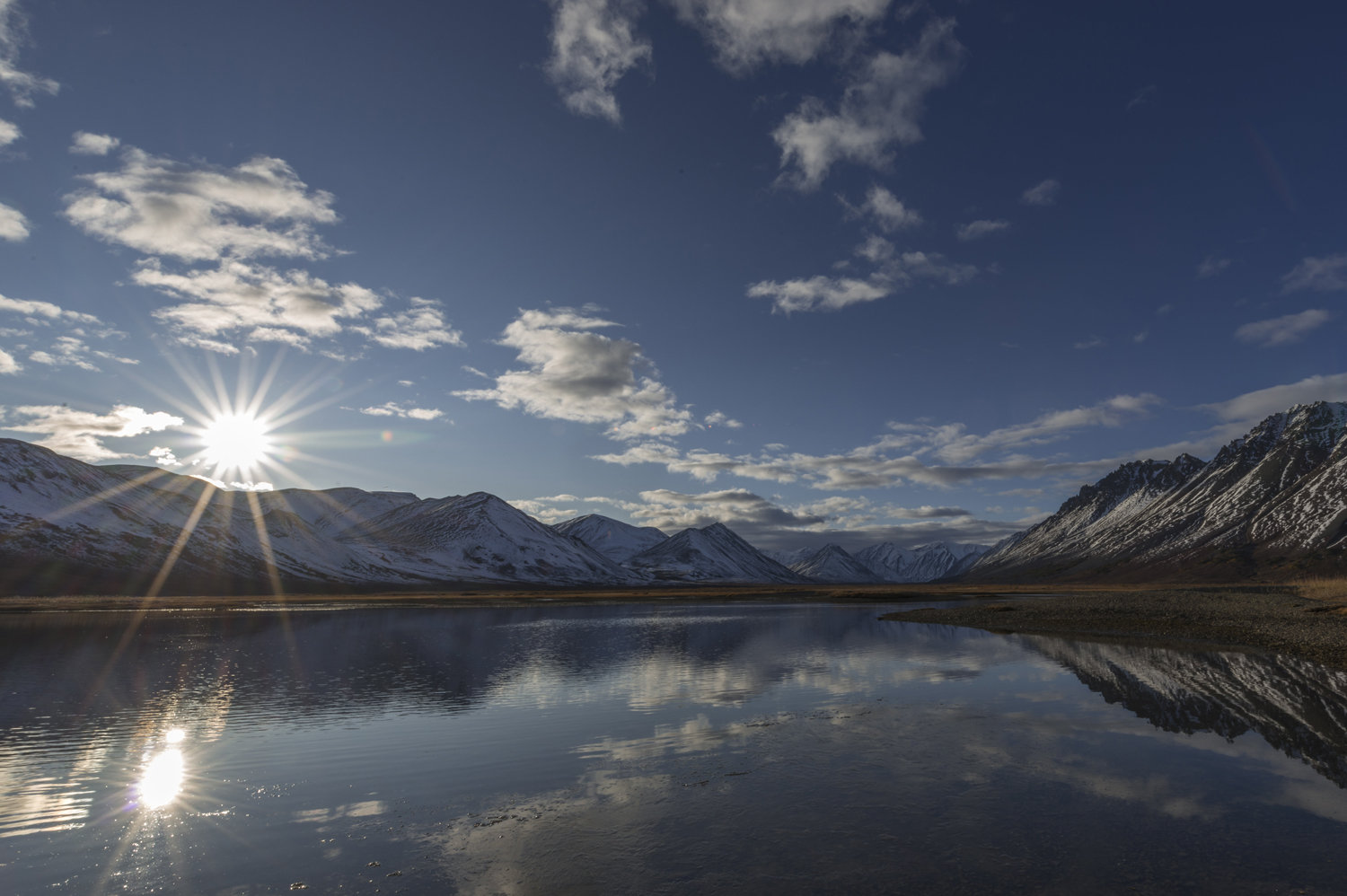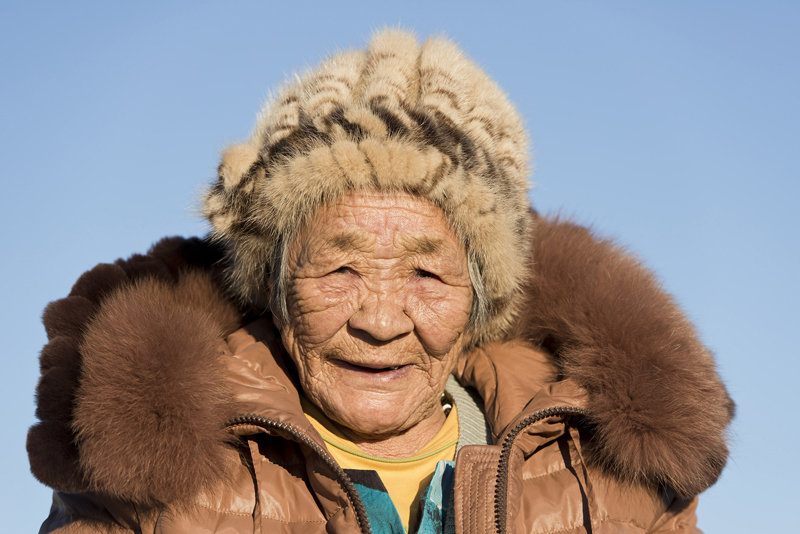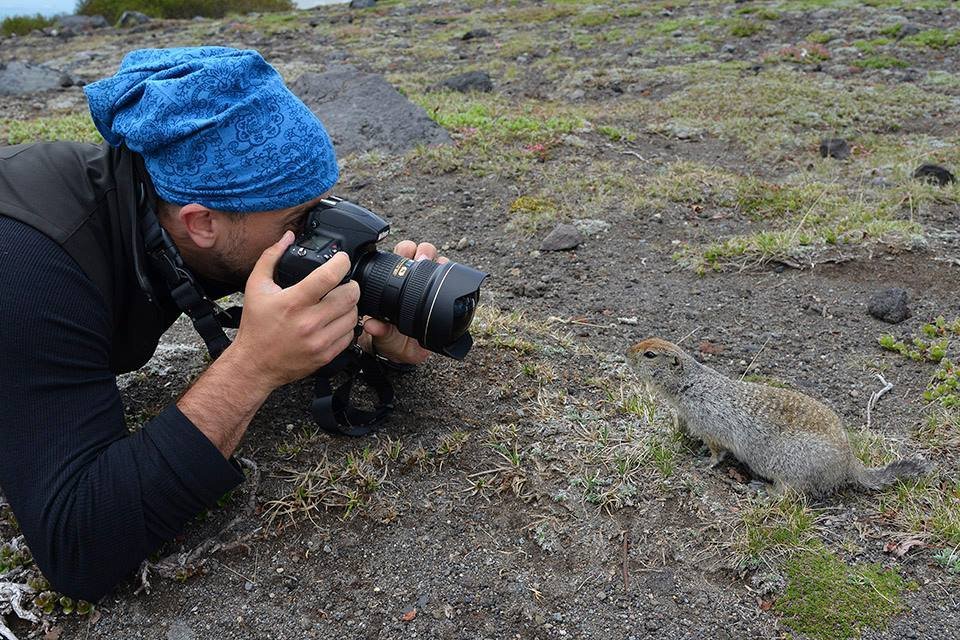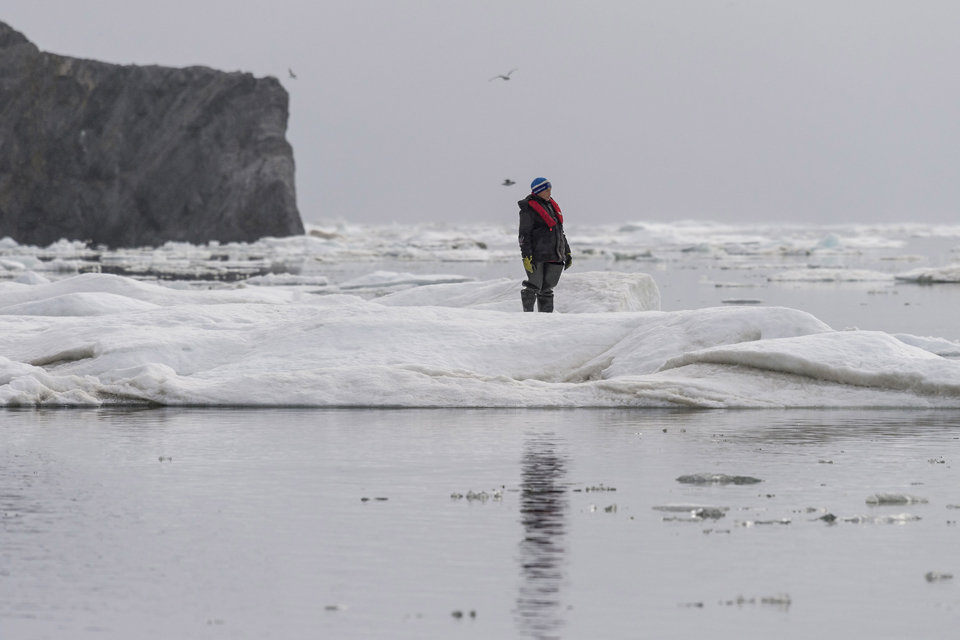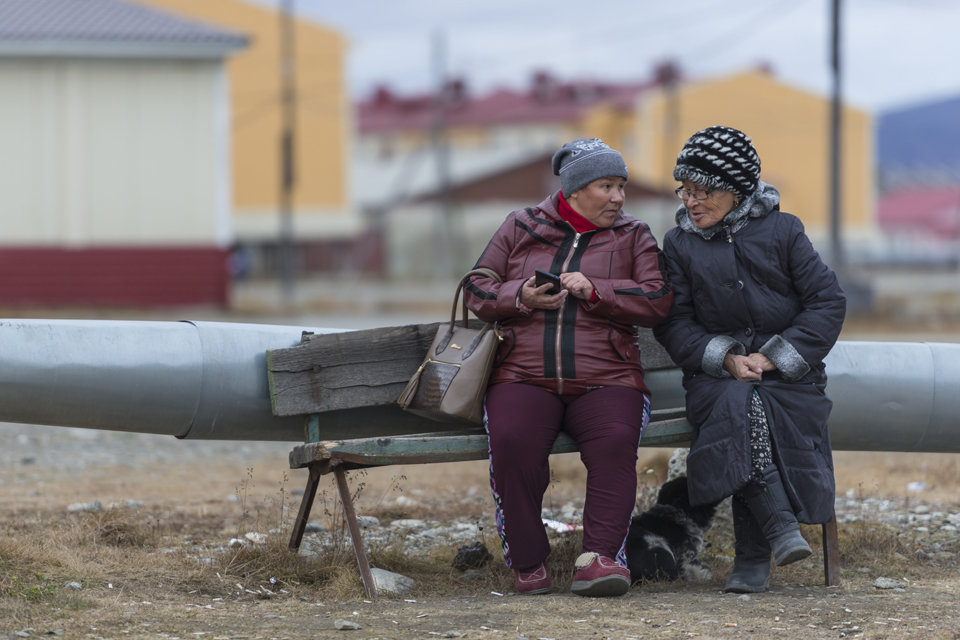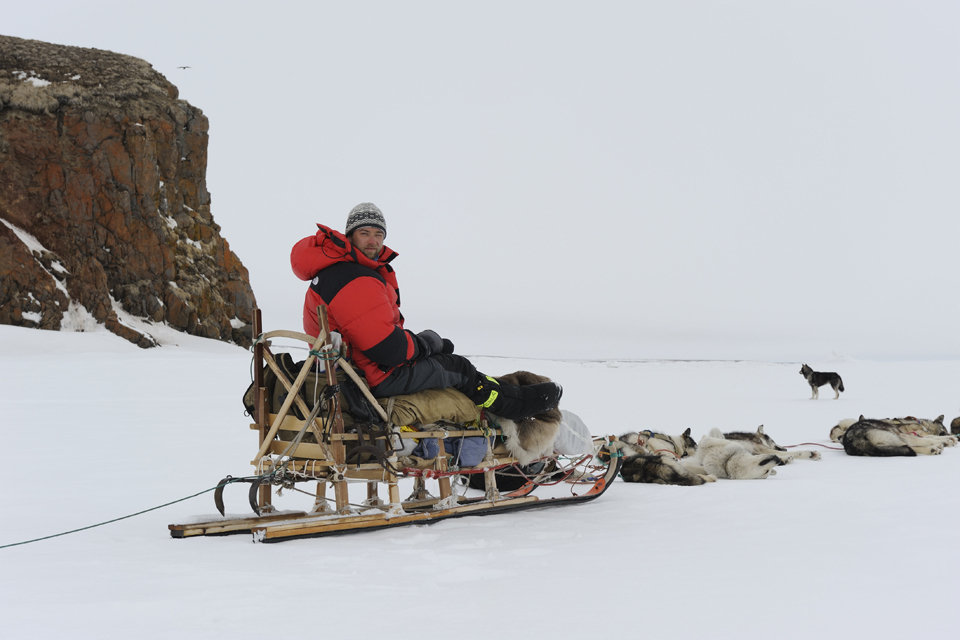"I've never counted the times I've been to Kamchatka and Chukotka. Must be over 25 in total, and at all times of the year. I've stayed in a mobile tent-like home called a yaranga when it was -25 degrees C° outside, and I've travelled on skis in the spring."
Once, Steffen had to spend the night in a tent on Yttygran Island close Whale Alley, an ancient sanctuary of Eskimo people. The place was still covered with snow. "There are moments like these when you feel how magical the place is. It's you, the sky, outer space and nothing else. A bear came, however, to walk around the tent the whole night. There was no sleep that night."
Steffan says that he respects the bears, not fears them - something he has learned from the locals in Chukotka and Kamchatka.
"This year, we could see over 200 polar bears at one time. It's unbelievable, a once-in-a-lifetime experience. Even Nikita Ovsyannikov, a researcher who has spent 37 seasons on Wrangel Island, had never seen it before. A bowhead whale had washed ashore, and the bears were coming one after another to treat themselves to the carcass, with no squabbling over who gets the best bits. There were lone bears, and females with cubs. Bears are very smart and sociable. And in just that one day we saw one percent of all their entire population on Earth."
